Hannah C.

Deer-Friendly Packaging Invented After Nara's Sacred Deer Died From Ingesting Plasting Bags
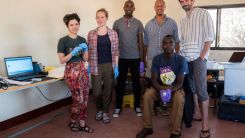
Health Issues Such as Obesity Are Due To the "Mismatched" Theory of Evolution and Diets

China Already Has Several Vaccine Candidates For Public Use
Genetic Study of Honeybees May Help Beekeepers Breed Species for Desirable Traits

Why Do Placebos Work?

Tropical Storm Saudel Heads Toward Landslide and Flood-Stricken Vietnam
Invasive Jellyfish Species from Australia Was Recently Spotted in North Carolina Beaches

Scientists Develop Gecko-Inspired Adhesive Grippers for Astrobee Robot
Can Good Sleep Keep Away Unwanted Memories?
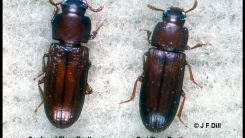
Flour Beetle Experiment Represents How Ecology is Affected By Invasive Species and Shifting Habitats
Australian Researchers Debunk Pink Salt Health Claims

Air Pollution Causes People to Choose Food Delivery Services, Resulting in Plastic Pollution
Harvard Researchers Link Particulate Matter from Air Pollution to Neurodegenerative Diseases
Satellites Detected the Largest, Warmest Marine Heatwave, "Blob 2.0," Off the Coast of California

Cold-Shock Protein May Be the Key To Treating Dementia

Climate Change May be Responsible for the Increase of Shark Attacks in Australia
Why Are Odors and Fragrances So Important?

A Large Feline Geoglyph Appears at the Nazca Lines UNESCO World Heritage Site
The OSIRIS-REx Spacecraft is Getting Ready to Land on Asteroid Bennu
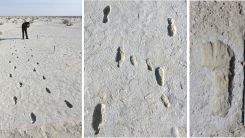
Ancient Footprints Tell a Story of a Parent and Child Making a Daring Journey
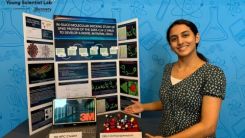
14-Year-Old Wins the Young Scientist Award for COVID-19 Spike Protein Research

Eco-Friendly Methods to Clean Oil Spills
Newly Discovered Biomarker Helps Indicate the Best Treatment for Melanoma
Critically Endangered Hainan Gibbon Uses Man-Made Rope Bridge for the First Time
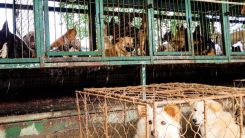
Charity Lady Freethinker Uncovers Horrific Dog Meat Auction House in South Korea
What Are Circuit Breaker Lockdowns?
Authorities Explain How Climate Change is Causing Drought and Colder Winters

Four Syndromes of Long COVID
Swine Coronavirus SADS-COV May Be Deadly for Humans as Well
Most Popular

Can We Bring Back Extinct Animals? How De-Extinction Science and Technology Work

The Air Pollution Climate Link: What Environmental Science Reveals About Our Changing Planet

Why Do Stars Explode? Supernova Formation and the Final Stage of a Star Lifecycle

Extreme Heatwaves Explained: What Extreme Heat Science Reveals About Our Changing Climate




